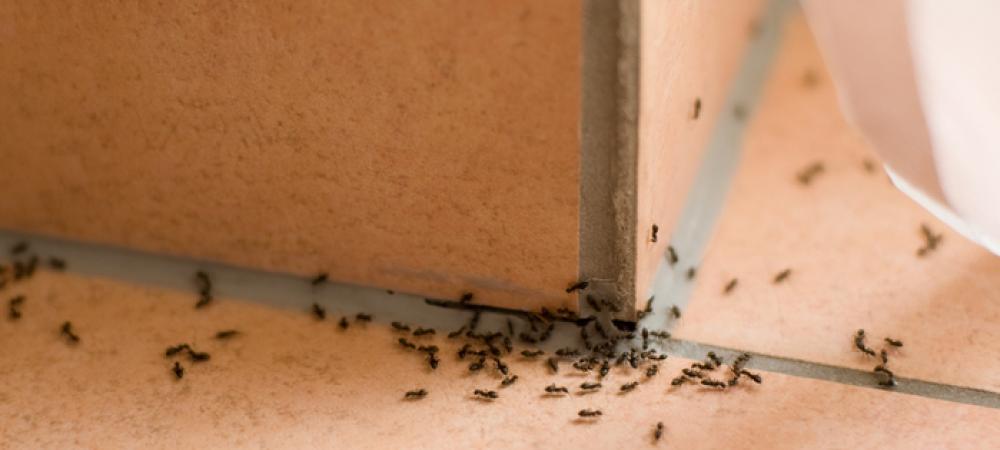How to Keep Ants Away

Ants are fascinating creatures, but when they invade our homes or gardens, they can quickly become unwelcome pests. Fortunately, there are effective strategies for keeping ants away without resorting to harmful chemicals or drastic measures. In this comprehensive guide, we'll explore practical tips and techniques for preventing ant infestations and maintaining a pest-free environment.
Understanding Ant Behavior
Ants are highly social insects that live in colonies, where each member plays a specific role in the community. They are attracted to sources of food, particularly sweet substances and proteins, as well as moisture. Ants communicate with each other primarily through the use of pheromones, which they deposit along trails to guide others to food sources or suitable nesting sites. Understanding these behaviors is crucial for developing effective strategies to keep ants away.
- Ants are social insects that live in colonies with specific roles.
- They are attracted to food sources and moisture.
- Ants communicate primarily through pheromones deposited along trails.
Ant-Proofing Your Home
Ant-proofing your home involves taking steps to seal off potential entry points and eliminate attractive food sources that may draw ants indoors. Seal cracks and crevices in walls, floors, and foundations using caulk or sealant to prevent ants from gaining access. Keep food tightly sealed in containers and promptly clean up spills and crumbs to remove enticing food sources. Additionally, maintaining a clean and tidy living space reduces the likelihood of ant infestations.
- Seal cracks and crevices in walls, floors, and foundations.
- Keep food tightly sealed and clean up spills promptly.
- Maintain a clean and tidy living space to deter ants.
Natural Remedies for Ant Control
Natural remedies offer a safe and eco-friendly alternative to chemical insecticides for repelling or eliminating ants. Substances like diatomaceous earth or cinnamon powder can be sprinkled along ant trails to create barriers that deter ants from crossing. Vinegar or lemon juice solutions disrupt scent trails, making it difficult for ants to navigate and communicate effectively. Essential oils such as peppermint, tea tree, or citrus can also be used as natural repellents to keep ants at bay.
- Diatomaceous earth or cinnamon powder can create barriers along ant trails.
- Vinegar or lemon juice disrupt scent trails.
- Essential oils like peppermint or tea tree act as natural repellents.
Using Ant Baits Effectively
Ant baits are a powerful tool for controlling ant infestations by targeting the entire colony, including the queen. Baits consist of a food attractant mixed with a slow-acting insecticide that ants carry back to the colony. Place bait stations near ant trails and entry points, ensuring they are inaccessible to children and pets. It's essential to allow ants to consume the bait and carry it back to the nest for effective colony elimination.
- Ant baits target the entire colony, including the queen.
- Place bait stations near ant trails and entry points.
- Allow ants to consume and carry bait back to the nest.
Maintaining Outdoor Spaces
Outdoor spaces provide ample opportunities for ants to forage and nest, making it essential to take proactive measures to prevent infestations. Eliminate sources of standing water, such as leaky faucets or birdbaths, to reduce moisture levels that attract ants. Keep outdoor trash cans tightly sealed and promptly dispose of food scraps to eliminate potential food sources. Additionally, consider using ant barriers or natural repellents around the perimeter of your garden to deter ants from entering.
- Eliminate sources of standing water to reduce moisture levels.
- Keep outdoor trash cans tightly sealed and dispose of food scraps promptly.
- Consider using ant barriers or natural repellents around the perimeter of your garden.
Regular Maintenance and Inspection
Regular maintenance and inspection are crucial for preventing ant infestations and addressing potential issues before they escalate. Routinely inspect your home and property for signs of ant activity, such as ant trails, nests, or swarmers. Address any issues promptly by implementing appropriate control measures to prevent infestations from taking hold. By staying proactive and consistent in your efforts, you can minimize the risk of ant infestations and maintain a pest-free environment.
- Routinely inspect your home and property for signs of ant activity.
- Address issues promptly to prevent infestations from escalating.
- Stay proactive and consistent in your pest control efforts.
Call Professional Exterminators to Take Care of Ants
Keeping ants away requires a combination of understanding ant behavior, implementing preventative measures, and using effective control methods. By following the tips outlined in this guide, you can create an environment that is less inviting to ants and enjoy a pest-free home and garden.
If you need help combating these insects, waste no time and contact Myles Pest Services for all your pest control needs including a reliable ant control service.

